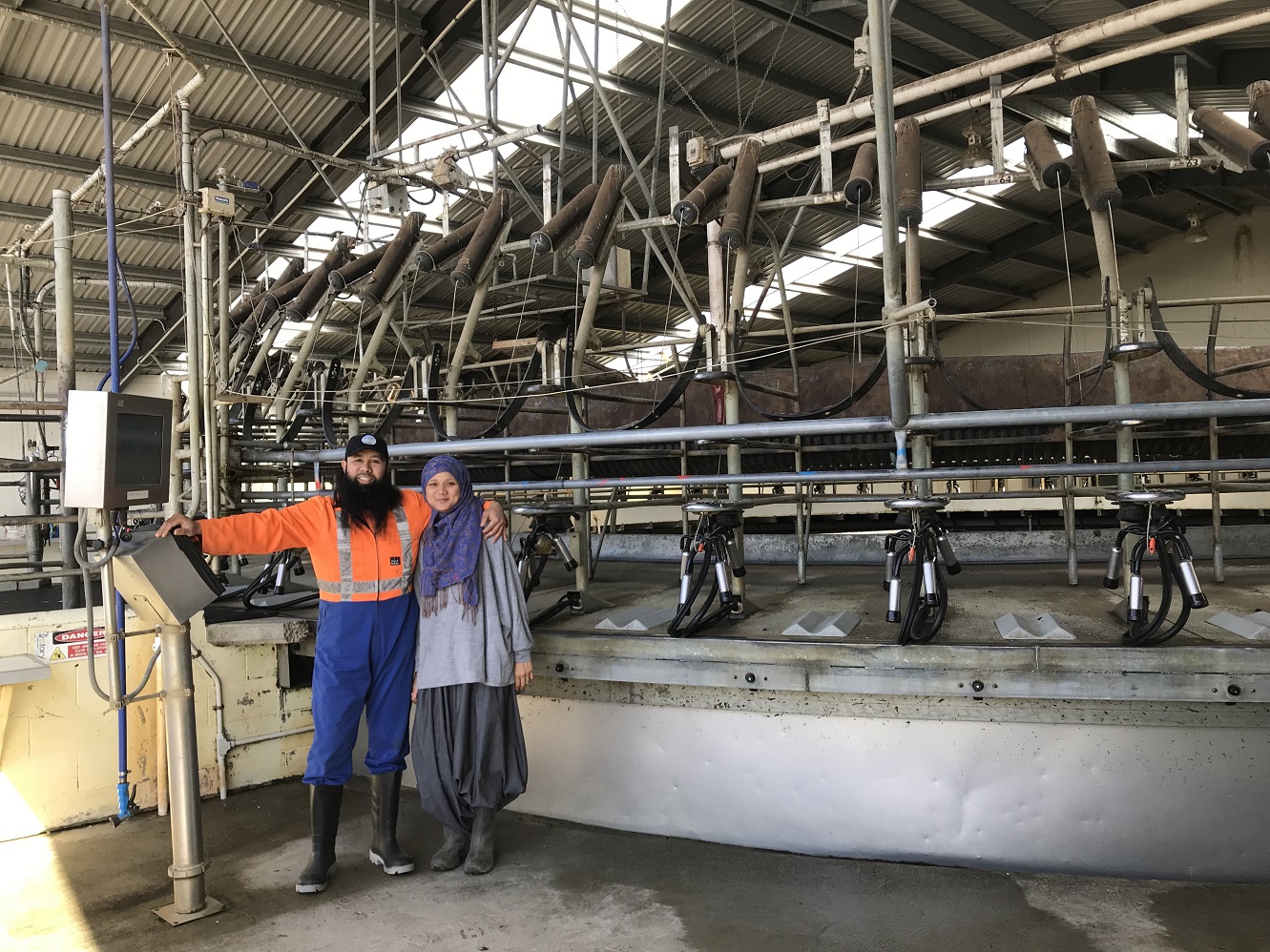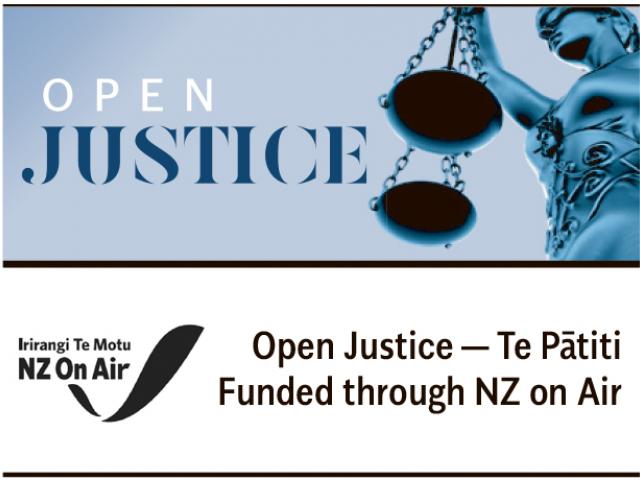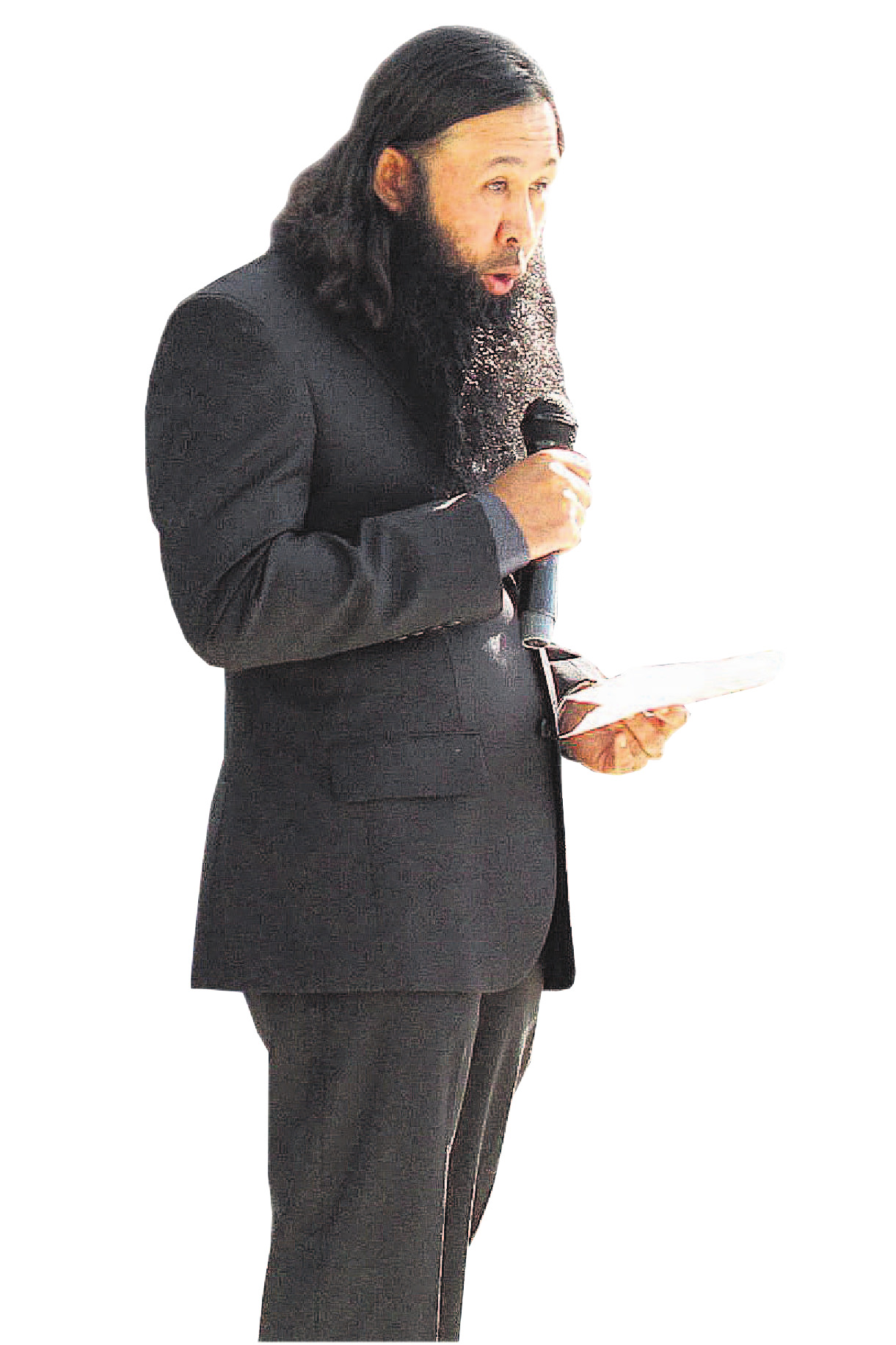
Felicity Dear and Rob Kidd report on how he took advantage of his countrymen who pursued that same dream.
A Southland imam’s reputation has been shattered after an investigation showed he ripped off his dairy-farm workers and doctored paperwork.
The Employment Relations Authority (ERA) ordered Reza Abdul-Jabbar to pay $52,056 to the staff involved, but the farm owner claims he was the real victim.
Abdul-Jabbar is the imam of the Southland Muslim Association’s mosque and, as the only Muslim dairy-farm owner in the country, has been portrayed as a trail blazer and pillar of the community.

A damning ERA decision revealed his company, Rural Practice Ltd (RPL), kept no wage or time records for six workers, despite boasting a "state-of-the-art" operation.
And it could get worse for Abdul-Jabbar.
The Labour Inspectorate sought penalties of up to $360,000 and a final decision by the authority is expected in the coming months.
When interviewed by the Otago Daily Times, Abdul-Jabbar remained defiant.
He claimed his staff had simply been "ganging up" on him and had manipulated the system.
He said there was an anonymous "mastermind" behind the manipulation, who allegedly had fallen out with several other dairy farmers.
"We were just running business as usual and had a difficult moment in our lives and they took advantage of that and tried to gain from us," he said.
"It’s a sad case where people are conniving, trying to manipulate the system and being malicious in order to gain something."
The ERA, however, found the situation to be very much to the contrary.
The case revolved around Agus Sutaji, Falentino Sembiring and Tedi Pribadi, whose employment spanned December 2017 to February 2022.
A labour inspector investigated the company following a complaint from Mr Sutaji in 2020 and interviewed the staff as well as Abdul-Jabbar and his late wife Silvia, who was also a director of the company.
An abundance of negligence was uncovered by the inspectorate which took the matter to the ERA after the parties were unable to reach agreement through lawyers.
It claimed more than $215,000 on behalf of the three workers but that figure was reduced by $64,387 after RPL made a payment once proceedings were under way.
The complex nine-day hearing — held across three sessions over two months — found that each employee had two versions of their contracts: one with the actual amount they were paid and a copy that specified a higher salary.
Authority member Alastair Dumbleton suspected the document with the larger sum was provided to Immigration New Zealand (INZ) so the underpayment could go undetected and the employees’ work permits would be granted.
Mr Dumbleton inferred the employment agreements must have been tailored by Abdul-Jabbar according to who would read them.
The farm owner gave no explanation for the dual contracts.
The authority believed one document had been doctored using white-out correction fluid, specifically to mislead the investigation.
The inspector concluded payslips in relation to Mr Sembiring had been "reverse engineered", likely to reflect an acceptable hourly rate to ensure the employee’s work permit was granted.
"There is no rational or credible explanation for the differences in the two sets of payslips," the decision said.
"In the absence of any explanation for the difference in the payslips, the authority views them as an indication that RPL, through its directors and owners, set out to mislead or deceive INZ or the inspector, or both."
Mr Dumbleton said it was clear some of the information in the documents had been "invented".
"The creation of separate sets of payslips, and presentation of them to statutory officers, must raise the strongest doubts about the intentions of the respondents," he said.
Questions were also raised about Mr Sutaji and Mr Sembiring allegedly being forced to give Abdul-Jabbar regular cash payments from their income, couched as "taxes".
The labour inspector said Mr Sutaji had paid $4800 to his employer and Mr Sembiring $18,600.
"[The inspector] concluded premiums had been charged and paid on several occasions, when sums of cash were given to Mr Abdul-Jabbar by the Indonesian workers, after they had withdrawn the money from ATMs at his request," the ERA decision read.
Mr Dumbleton said it was unclear whether the money represented loans, advances or repayments and as such, no repayment order was made.
Abdul-Jabbar denied he or his company had done anything unlawful.
He went further, claiming he had been the victim of an elaborate plot instigated by the staff.
At the hearing, RPL sought to introduce a recording of a conversation between Mr Sutaji and Mr Sembiring which supposedly held evidence of collusion.
There was no explanation as to how it was obtained and only part of the discussion was translated.
The ERA concluded it did not assist the investigation as the expertise of the translator was unclear, the context of the calls was ambiguous and the workers had had no opportunity to respond.

Abdul-Jabbar said the sophistication of his farm meant they would not have needed to work the hours claimed.
Given the lack of records kept by the farmer and his wife, it was an almost impossible task for the ERA to determine.
"Ironically, although the milking operation is designed and installed to be labour-saving, the respondents did not properly monitor or manage their labour usage," Mr Dumbleton said.
He concluded that Abdul-Jabbar knew exactly what he was doing and the mistreatment was not accidental.
"Ignorance or carelessness of the respondents are not a likely explanation for the situation. In the way they had decided to run their business, it appears to have suited them not to keep proper records," Mr Dumbleton said.
"RPL took pride in its hi-tech ‘state-of-the-art’ milking operation and Mr Abdul-Jabbar was clearly intelligent, well educated, energetic and experienced in dairy farming, but nevertheless the respondents collectively failed to comply with basic, long-standing and well-known employment requirements to keep proper records."
The ERA said the respondents had to bear "all or most of the responsibility" for the situation they found themselves in.
"The omission to keep records was simply another part of a wider election by RPL not to comply with employment standards and gain financially at the workers’ expense," Mr Dumbleton said.
"The respondents blinded themselves to the reality of the time the workers were spending on the job and any holidays or leave they were taking or were intending to take."
Mr Sutaji had also complained Abdul-Jabbar had taken his passport and other forms of identification and would not give it back when he asked, but that was never revisited in the ERA decision.
Abdul-Jabbar told the ODT he had been unfairly maligned and claimed his staff had taken advantage of him during a time of turmoil.
He admitted he had not kept a clear record of his employees’ holiday pay, but said that was an honest mistake and the staff still took their leave.
"Yes, there’s some data recordings or some records not being kept ... but it’s nothing malicious," he said.
"All the things they’re saying about minimum wage stuff, that’s all been thrown out."
He was concerned nobody went to the farm to see for themselves how many hours it would require to do specific tasks.
He said he and his wife, Silvia, had gone "over and above what a Good Samaritan would do" and even bought the employees cars.
However, he would not confirm how much he truly paid his staff.
The Federation of Islamic Associations of New Zealand was approached but did not comment due to the "personal" nature of the matter.
A complex case
- ERA hearings last year lasted nine days, heard from 12 witnesses, considered 1600 pages of documents.
- Rural Practice Ltd paid $64,387 to three workers after proceedings began; inspectorate sought a further $151,190 for wage arrears and holiday pay.
- ERA ordered an extra $52,056 be paid.
- Labour inspectorate seeks penalties of $130,000 against Reza Abdul-Jabbar (director/shareholder) and $230,000 against his company Rural Practice Ltd.
- ERA will release determination on penalties in coming months.
- Workers were not given employment agreements when they started work at RPL.
- RPL had no wage or time records for six workers, no holiday or leave records.
- Abdul-Jabbar and his late wife Silvia ruled to have knowingly breached employment standards for several years.
- Abdul-Jabbar maintains his innocence, calls his employees "conniving".









